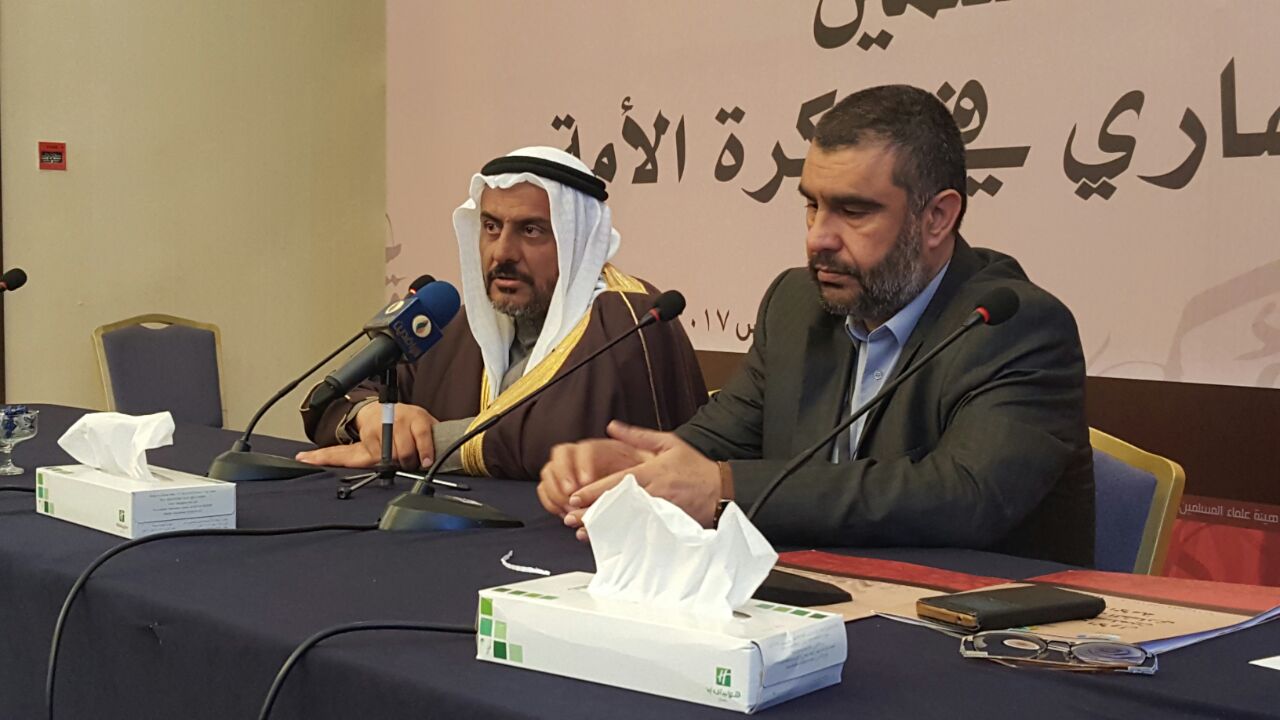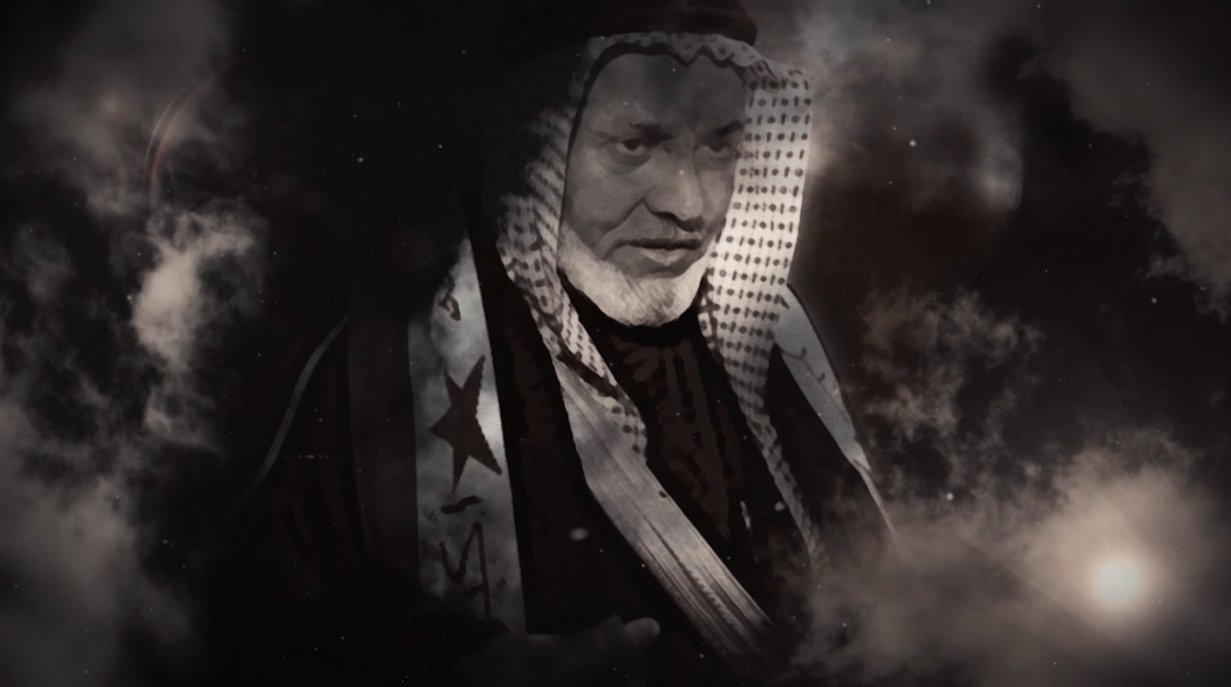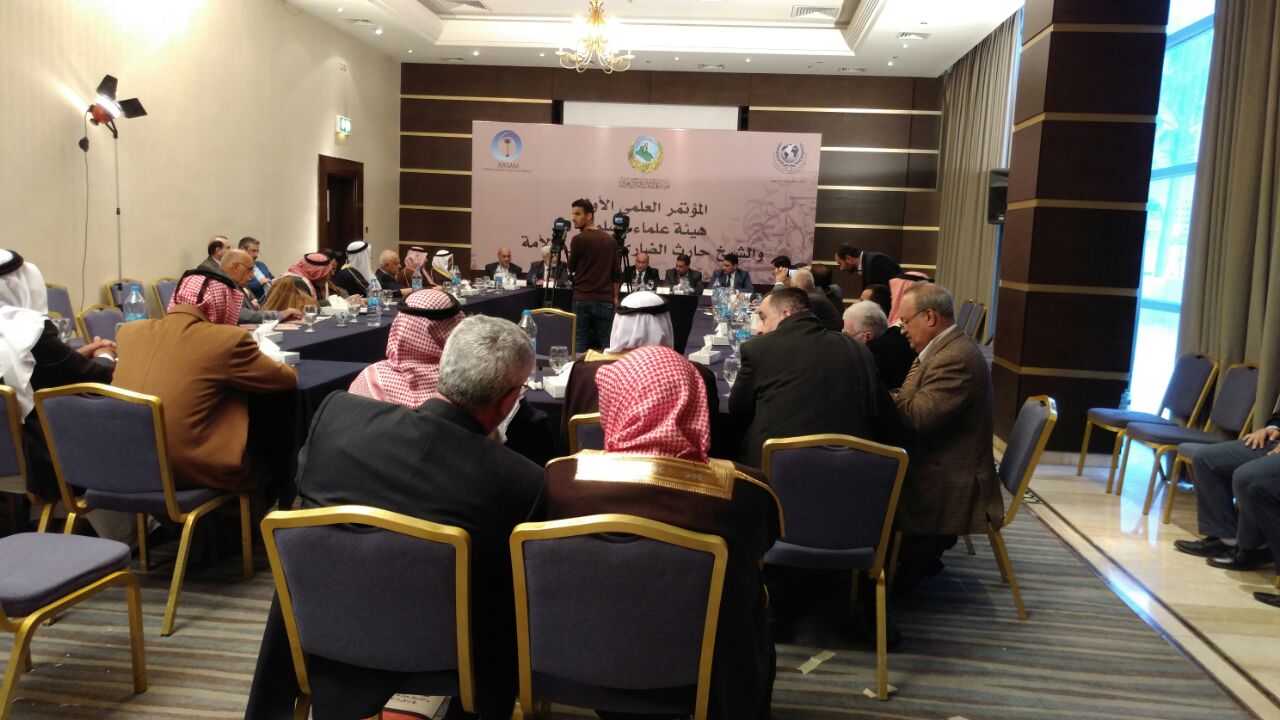The deathblow to America’s plot was landed by Iraq’s Association of Muslim Scholars (AMSI), who not only spiritually represent the nation’s Sunnis, but are also considered one of main players between the nationalist organisations currently united against the current political process in Iraq.
The US pressured its regional Sunni allies to hold a conference where they would coax the Iraqi Sunnis into running in and legitimising the 2018 Iraqi general election, which will most likely take place after the military defeat of Daesh.
The conference was held in the Turkish capital Ankara last week, on 8 March 2017.
According to their official statement, AMSI agreed to attend “to openly put forward the point of view of those who are opposed to the political process to the countries of the region.”
Other than the host country, four other countries were present: Saudi Arabia, Jordan, Qatar, and the UAE.
AMSI is known for resisting numerous attempts to be roped into Iraq’s political process, and sees itself as the spiritual and religious leader of the nation’s Sunnis, as opposed to party political hacks.
“I asked for the first word and will excuse myself after it, because we (AMSI) are the only side invited outside the political process, and I am here on that basis,” Iraq’s most influential Sunni religious leader said.
“The reason for our participation,” he said, “is to encourage Arab and regional efforts to counter Iranian hegemony in Iraq and the region in the suitable way that will return to Iraq and the region and its people their security and stability.”
He continued: “Any plan that is not wary of the root of the problem will be doing the opposite of what is desired by Iraqis general and Sunnis especially, as they are the most affected by what is currently happening in Iraq.”
Al-Dhari was scathing with regards to politics in Iraq, condemning Sunni politicians who take part “in a game whose rules are rigged from the beginning.
“Previous experience has proven that what has added fuel to the fire is the existence of Sunni sides participating in the [political] process, and them giving it legitimacy despite them knowing they have no influence in it.
“A good example of this experience is the state of despair Sunnis lived through due to these sides denying the demands of the people, and their cooperation with the authorities to end the uprising of 25 February 2011, and the Revolution of Honour and Dignity in 2013.
“And what has increased the despair of the Sunnis is that many of these Sunni sides in the political process have aligned with Iran, and have submitted to Iranian pressure – willingly or fearfully – and cooperated and allied with some Iranian personalities and parties, which we all fear will return now.”
He also emphasized the plight of Iraq’s – largely Sunni – internally displaced, saying: “Where are the Sunnis that you are talking about? Didn’t they not return to their cities, and are most of them not in refugee camps, and so cannot even take part in the elections?”
He closed his statement by saying that the political process was “fruitless, a failure, and the starting point for all the devastation in Iraq since 2003.”
Al-Dhari then left for Amman, where he resides, leaving behind him the wreckage of the US’ attempt to use him for their own ends.
The question is: what does this mean for the US’ post-Daesh roadmap?
…fool me twice, shame on me
Nothing good, that much is certain.
Al-Dhari’s words carry weight – his father founded AMSI and was known as the ‘spiritual leader’ of the Iraqi resistance to the US occupation. His grandfather and great-grandfather played a pivotal role in 1920 revolt against British imperial rule. In short, when al-Dhari speaks, Iraqis listen.
There will be no new faces, no new political party or electoral list, no new sense of political drive – just the same, old Sunni faces taking part in the same, discredited political process.
Other Iraqi Sunni leaders attending the conference include: ubiquitous businessman Khamis Khanjar; Jamal al-Karbouli who is secretary general of ‘al-Hal,’ an Sunni political party; Saad al-Bazzaz, a media tycoon who owns the al-Sharqiya TV channel; Rafi al-Issawy of the Islamic Party (the Muslim Brotherhood’s Iraqi branch); Atheel al-Nujaifi, former governor of Sunni-majority Nineveh governate; and his older brother Ossama al- Nujaifi, who is currently one of Iraq’s three vice-presidents. Member of the "Sahwa" US born "Sons of Iraq" Program were also present.
The fallout from the US failure at the Ankara conference has a number of important and far-reaching consequences.
Firstly, it highlights the prospect of a Maliki victory being more likely next year; an event that would take the political process back to square one.
Nouri al-Maliki was Iraq’s prime minister from 2006 to 2014. His career was ended by Daesh sweeping into Iraq from Syria and taking a third of the country on his watch. Or at least, his career should have been ended. Since being forced out of office he was been attacking current Prime Minister Haider al-Abadi – and has his eyes on returning to power in 2018.
Maliki has Iran’s backing, and with Tehran come their militias. The Iraqi Shia militias and corresponding family members of voting age make up 7-800,000 voters – enough to put a man like Maliki back in power.
FRB has previously reported that Iran’s Qassem Soleimani has already said that he wants the militias to enter politics after Daesh’s defeat.
Soleimani is the leader of the Quds Force, the elite branch of Iran’s Islamic Revolutionary Guards Corps (IRGC), which is charged with protecting the Iranian revolution at home and abroad.
Not for the first time, the US agrees with Iran. In order to achieve some semblance of stability in the country, America also wants the Shia militias to disband and enter politics instead.
To this end, the US have pulled back the majority of the elite Iraqi Special Forces from the Mosul operation. The ISF had numbered 10,000, but now only 3,500 remain.
These remainders, combined with the Iraqi Kurdish Peshmerga, and other loyal Iraqi army troops will give the US enough military clout to face down the Shia militias currently running rampant in the country, and coerce them off the battlefield and into the political arena.
But this is where mutual US and Iranian aspirations come to an end. The US does not want Maliki back in power as they believe this will allow Iran unfettered control over Iraq.
Instead, America has chosen to rally around the embattled incumbent, Abadi.
To do this, they have tried stitching together the country’s liberals, leftists, and dissident Shia movements, such as the Sadrists, to create a pro-Abadi coalition.
Key to this plan are the Sunnis, who the US hoped would finally throw their full weight into the political arena and do so behind Abadi.
But after al-Dhari’s one-man stand in Ankara, not only has the prospect of a Maliki victory increased, and an Abadi victory decreased – but regardless of who wins, they will not have legitimacy from the country’s Sunnis.
The US failed to control Iraq post-2003 because it did not include Sunnis, and America was forced to return to Iraq post-2014 because the Shia government also did not include Sunnis.
The third time will not be lucky.




 RSS Feed
RSS Feed